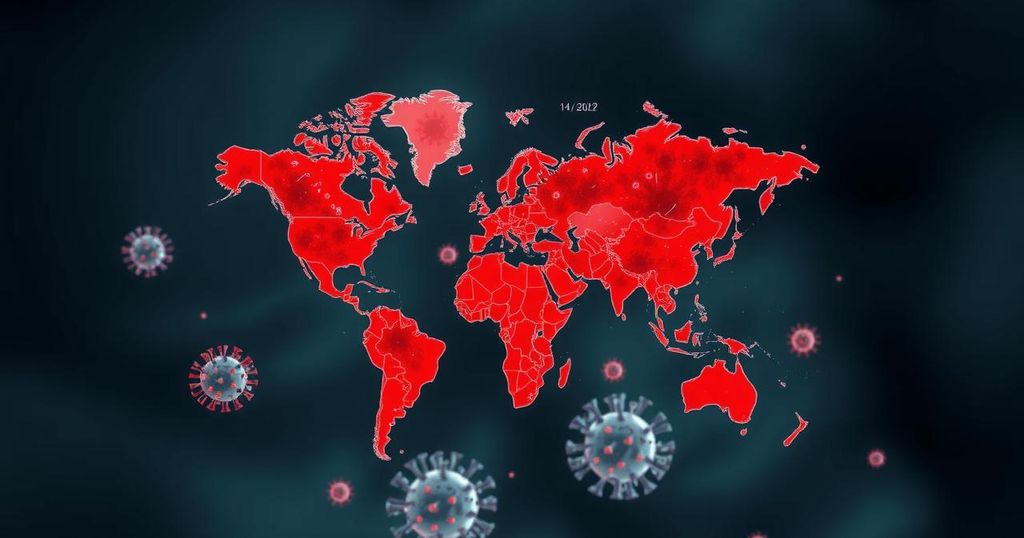Human metapneumovirus (HMPV) cases are rising globally, particularly in China where outbreaks are primarily affecting children. The virus, which causes mild respiratory illness, raises concerns about potential complications for vulnerable populations. Health authorities are enhancing monitoring without declaring a global emergency. The seasonal increase aligns with winter trends, emphasizing the need for awareness and caution.
The recent outbreak in China of human metapneumovirus (HMPV) has triggered a noticeable increase in cases across various regions globally, including India, Malaysia, and Kazakhstan. Initially reported in northern China, this respiratory virus has particularly impacted children, leading to significant public concern. Images of crowded hospitals and individuals wearing masks have proliferated on social media, amplifying fears over the virus’s spread.
Characteristically, HMPV manifests flu-like symptoms such as cough, fever, nasal congestion, and fatigue. While often mild, the virus can precipitate serious complications, particularly in vulnerable groups including the elderly and those with weakened immune systems. It is worth noting that HMPV, identified in 2001, is not a new threat; rather, it has garnered attention due to this recent surge in cases.
Chinese health authorities and experts believe that the seasonal trends and colder weather have contributed to the increase in infections. Official statements indicate that respiratory infections commonly peak in winter months, and a representative from the Chinese foreign ministry remarked that the current surge appears to be less severe than in prior years.
Concurrently, the World Health Organization (WHO) has not declared the situation a global health emergency, although monitoring efforts have been intensified. A pilot program has kicked off to enhance the tracking of pneumonia cases of unknown origin, ensuring that health agencies accurately report and manage suspected cases.
As different countries begin reporting HMPV cases, it is crucial to remain informed about preventive measures, given the absence of a specific vaccine or antiviral treatment for the virus.
Human metapneumovirus (HMPV) is a respiratory virus that has been causing concern due to an observed rise in cases in China and other countries. Initially discovered in 2001, the virus typically exhibits symptoms similar to those of the common cold and influenza. While most individuals recover from HMPV without requiring special treatment, severe complications are possible, particularly among susceptible populations. The current upsurge in cases appears to align with winter seasonal patterns, prompting public health responses and monitoring initiatives.
In summary, the reported rise in HMPV cases across various countries, notably following a significant outbreak in China, underscores the need for heightened awareness and preventive measures. Health officials are closely monitoring the situation, with the implementation of new systems to evaluate and manage cases. While the current outbreak does not present the same level of threat as Covid-19, vigilance remains essential to safeguard public health.
Original Source: www.independent.co.uk






